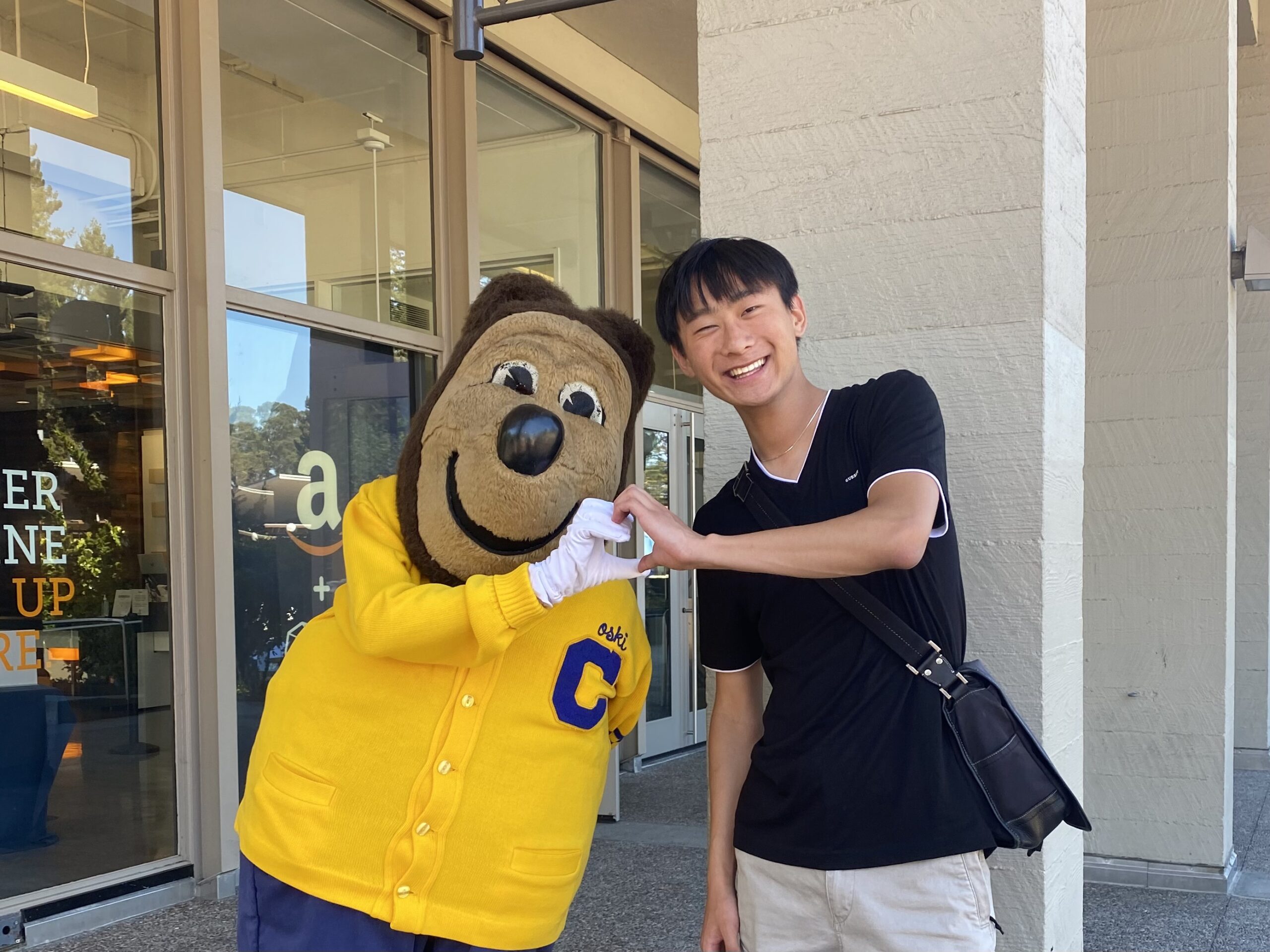
Reflections on a Class on Happiness
Being happy not only feels good, but bolsters and indicates one’s health, productivity, and ultimately success. I used to think happiness is mostly environment-dependent and usually out of people’s control. However, my perspective began to change as I journeyed through my major coursework, and in particular the class Neuropsychology of Happiness (COGSCI 115).
I learned that creating happiness is a skill people can train to help them through different environments. You are what you repeat, because passing mental states become lasting neural traits when repeated. This article highlights three research-backed factors for happiness from COGSCI 115 that I’ve integrated into my life, and how you can find them at Cal with practical resources and simple exercises.
Three Factors Influencing Happiness
1. Attention: See and Savor
Explanation.
We’ve heard of “is the glass half empty or full?” But if you’re about to give a presentation, are you anxious or excited? When you have no plans, are you lonely or free to do whatever you’ve been wanting to do? You can choose to see the same situation in a way that enhances your distress and sadness or optimism and gratitude.
Savoring is dwelling on positive experiences and emotions, both during the moment and after. Remember “you are what you repeat”? The more your brain thinks positively, the more you’re able to notice, sustain, and replicate those experiences and emotions.
Your experience in life is a game of attention. Choose to see and savor the positives, and it will soon become natural to feel good.
Application.
- Reframe view of stress: Fact — stress and challenges are fuel for growth and success. Sometimes before starting a project I dread, I reflect on why I am doing it and become grateful for the opportunity. Thinking in this way makes me feel more motivated, calm, and optimistic.
- Gratitude: Gratitude journaling and writing gratitude letters (to one or two people once a month) deepen my sense of appreciation and satisfaction through savoring.
- Awe: Did you know it’s the most beneficial emotion for your health? For me, I experience awe through beautiful things (like roses in my room and music), nature (like the hikes, gardens, and more all around Berkeley), and learning something new and fascinating.
2. Health
Explanation. A healthy brain is a happy brain. Making an enjoyable and sustainable routine with the following factors promotes happy neurotransmitters, and can help you build a sense of structure and confidence.
Application.
- Eat: A Mediterranean diet and eating more fruits and vegetables have been found to be helpful for better mood. I used to struggle with eating consistent balanced meals (I’d get too tired to cook after a long day) so I decided to invest in a meal plan from Berkeley Dining.
- Sleep: Most people need at least seven hours of uninterrupted, quality sleep. If you struggle with falling asleep, you can try practices from cognitive behavioral therapy for insomnia.
- Exercise: Did you know it’s the most effective instant mood booster? After two years at Cal, I have finally found an RSF routine I like. Whether with friends or alone, inside or outside, even moving 10 minutes a day helps.
- Relationships: Quality relationships are the strongest predictor for happiness. You can make friends by joining clubs on campus (especially social-cultural ones) and consistently showing up to routine social situations (like discussions). To deepen your connections, you can do random acts of kindness (like pay for a meal), spend time with those you resonate with, and see and savor the positives of your relationships.
3. Self-Actualization
Explanation. Self-actualization is being able to realize and express one’s talent, meaning, and potential. People who have reached this top level of Maslow’s hierarchy of needs tend to be aware and accepting of themselves; they are open to but not stressed out by others’ opinions.
Application.
- Identify and exercise strengths and passions: I like to think that I can do all things, but some things are meant for me to do. It’s worthwhile to take some time and reflect on what they are to you.
- Do what interests you: Try out and engage in classes, DeCals, clubs, and jobs that you care and have been curious about. Make time for hobbies, as they help you relax, have fun, and feel capable.
- Do work well: Sometimes I don’t want to do work, but once I start, I begin enjoying it because I realize I am exercising my strengths and creating something I am proud of.
Take a Class
If you were interested in the topics I covered, I would recommend taking COGSCI 115. It provides a much fuller understanding of happiness factors and underlying mechanisms than the small sample here (even this article was originally twice its size). Professor Chan is quite engaging and her lectures are filled with fun facts and stories.
This semester I am taking Human Happiness with Professor Keltner, so maybe I will follow up with a part two. Until then, you can check out UC Berkeley’s Greater Good Science Center for the newest positive psychology resources.
If your happiness is a ship and life is the ocean water, practicing your steering skills means being able to stabilize your ship even through rough patches. Hopefully you have picked up some tricks from this article to take care of your happiness.
Hosea Chen is a fourth-year at UC Berkeley majoring in cognitive science, and minoring in creative writing and data science.
Want More?
- Find out more resources for physical, nutritional, and mental wellness at Cal.
- Check out one student’s account of finding a healthy mindset in challenging times.
- Curious about advice from a student on finding your balance?